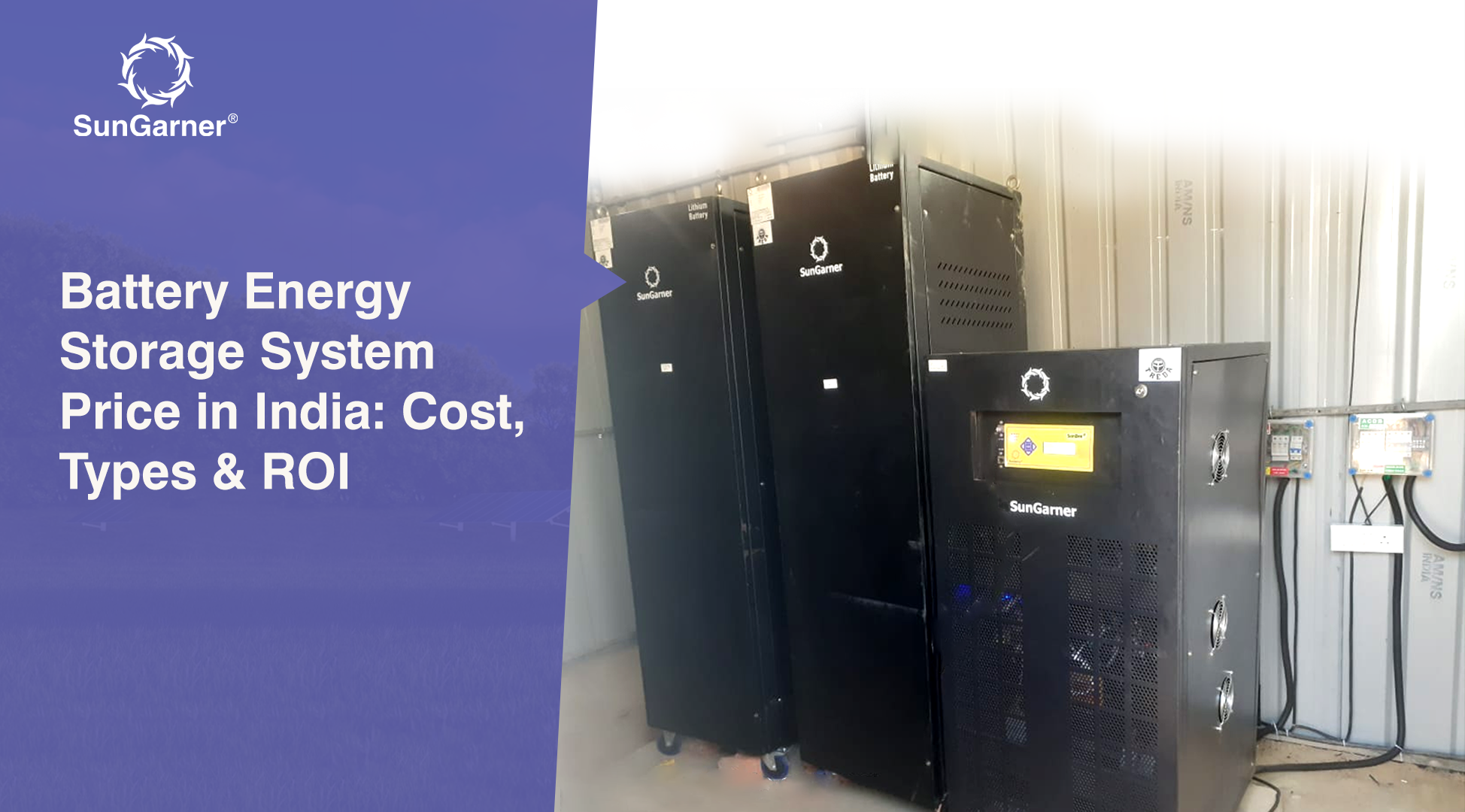Govt Boosts Solar Energy: ₹1,500 Crore Allocated for Solar Power Grid
The Indian government has announced a major push towards renewable energy by allocating ₹1,500 crore for the development of the solar power grid sector. This initiative aims to strengthen India's renewable energy infrastructure, accelerate the transition to clean energy, and reduce dependence on fossil fuels.
The Indian government has announced a major push towards renewable energy by allocating ₹1,500 crore for the development of the solar power grid sector. This initiative aims to strengthen India's renewable energy infrastructure, accelerate the transition to clean energy, and reduce dependence on fossil fuels. With this move, the government reiterates its commitment to achieving ambitious renewable energy targets set for the coming years.
India’s Solar Energy Drive Gets a Major Push
To boost solar energy adoption in India, the government has earmarked ₹1,500 crore under its latest budget to enhance solar power grid infrastructure. This initiative aligns with India's vision of becoming a global leader in renewable energy and achieving net-zero carbon emissions by 2070. The fund allocation is expected to drive investment in solar power projects, enhance grid connectivity, and support AI-powered smart grids and innovative battery energy storage systems (BESS).
Strengthening Solar Infrastructure
With this budgetary allocation, the government plans to strengthen solar infrastructure by:
* Expanding grid-connected solar power plants.
* Developing advanced energy storage solutions like BESS.
* Enhancing solar panel manufacturing under Make in India.
* Encouraging rooftop solar installations across residential and commercial sectors.
The investment will also help modernize the power grid to ensure efficient distribution and storage of solar energy, reducing transmission losses and improving overall efficiency.
SunGarner’s Role in India’s Solar Growth
SunGarner, a leading name in the renewable energy sector, welcomes the government’s decision to invest heavily in solar energy. As a pioneer in solar technology, SunGarner provides innovative solutions such as solar inverters, solar panels, and advanced energy storage systems. The company is poised to contribute significantly to the expansion of India’s solar grid by offering high-quality, efficient, and sustainable solar products.
Boosting Domestic Solar Manufacturing
A significant portion of the allocated funds will go towards boosting solar panel manufacturing under Make in India. The government aims to reduce reliance on imports and promote local production of:
* Solar panels
* Lithium-ion batteries
* Inverters
* Other essential solar components
The Production Linked Incentive (PLI) for Solar manufacturing is also set to receive a boost, further encouraging companies like SunGarner to scale up operations and meet the growing demand for renewable energy solutions.
Encouraging Private Sector Participation
The solar industry is expected to witness increased private sector investment in solar as a result of the government’s funding. The allocated funds will provide incentives for businesses and startups to invest in:
* Large-scale solar farms
* Smart grid technology
* Hybrid energy solutions combining solar with wind and storage systems
By facilitating Public-Private Partnerships (PPP), the government aims to accelerate the adoption of solar energy and create a robust ecosystem that supports innovation and job creation in the renewable energy sector.
Rooftop Solar Subsidy Expansion
The budget also includes provisions to expand the rooftop solar subsidy, enabling households and commercial establishments to generate their own electricity. The government plans to provide subsidies and financial assistance for rooftop solar panel installations, making it an affordable and viable option for consumers.
This move is expected to:
* Reduce electricity bills for consumers
* Improve energy independence
* Reduce carbon footprint at an individual and business level
SunGarner actively promotes rooftop solar solutions, offering high-performance solar panels and inverters tailored to meet varying energy needs.
Investment in Energy Storage & Grid Stability
One of the major challenges of solar energy is its intermittency. To address this issue, the government’s allocation of ₹1,500 crore will also focus on energy storage solutions such as:
* Battery Energy Storage Systems (BESS)
* Pumped hydro storage
* AI-powered smart grids with predictive analytics
Advanced energy storage systems will help in balancing supply and demand, ensuring that excess solar energy is stored and used when required. SunGarner is at the forefront of developing energy storage solutions that optimize energy usage and improve grid stability.
Accelerating India’s Renewable Energy Targets
India has set an ambitious target of achieving 500 GW of non-fossil fuel-based electricity capacity by 2030. This budget allocation will play a crucial role in achieving that goal by:
* Increasing solar power capacity across the country
* Enhancing infrastructure to support large-scale solar adoption
* Encouraging research and development in solar technology
With a strong focus on sustainability, companies like SunGarner will be instrumental in driving innovation and making renewable energy more accessible to industries, businesses, and households.
Economic & Environmental Benefits
The investment in solar energy is expected to generate multiple economic and environmental benefits, including:
* Job Creation: Thousands of new jobs in manufacturing, installation, and maintenance of solar power systems.
* Reduction in Carbon Emissions: A step towards achieving India’s climate commitments.
* Energy Security: Reducing dependence on coal and fossil fuels.
* Lower Electricity Costs: Affordable solar power solutions for consumers and businesses.
Challenges & The Road Ahead
Despite the positive momentum, challenges remain in implementing large-scale solar projects. These include:
* Land acquisition issues for solar farms
* High initial costs for setting up energy storage solutions
* Need for continuous policy support and regulatory reforms
However, with strong government backing and participation from industry leaders like SunGarner, India is well on its way to becoming a solar powerhouse.
Conclusion
The government's decision to allocate ₹1,500 crore for the solar power grid is a landmark step towards a sustainable future. This investment will not only boost solar energy adoption in India but also create economic opportunities and contribute to global climate change mitigation efforts.
SunGarner remains committed to supporting this transition by providing cutting-edge renewable energy infrastructure solutions and playing a pivotal role in India's clean energy revolution. With government initiatives and industry collaboration, the dream of a solar-powered India is now closer to reality than ever before









